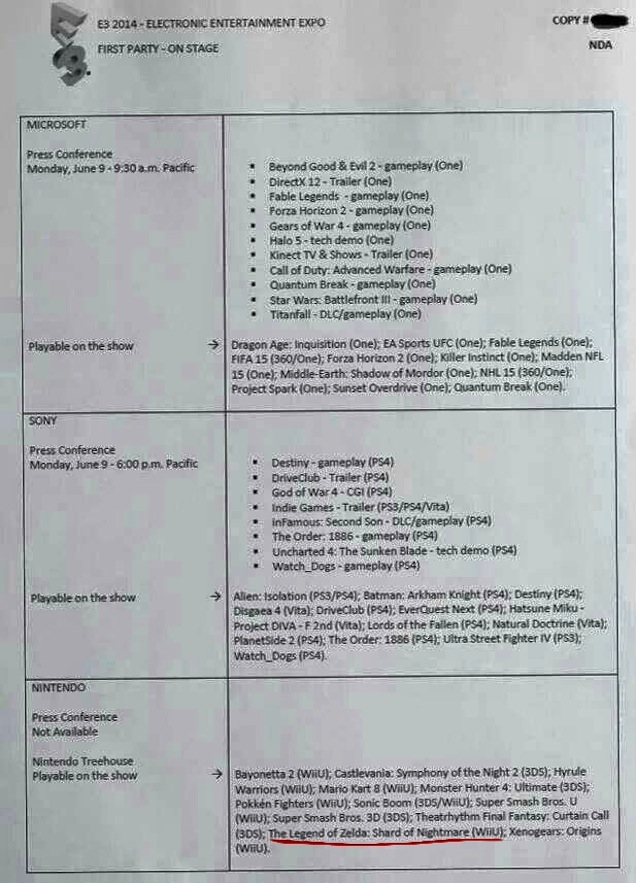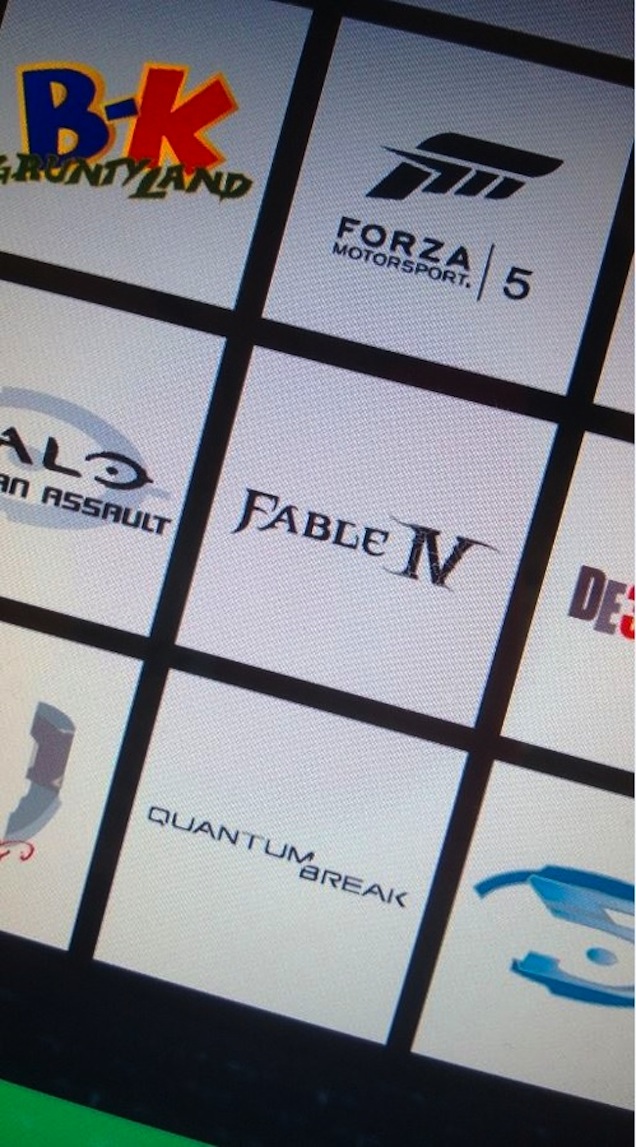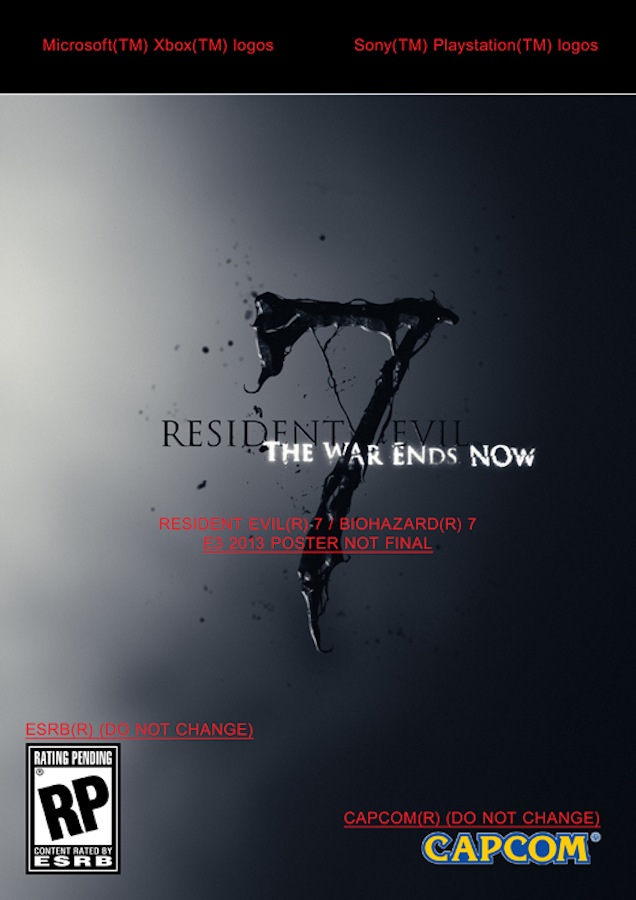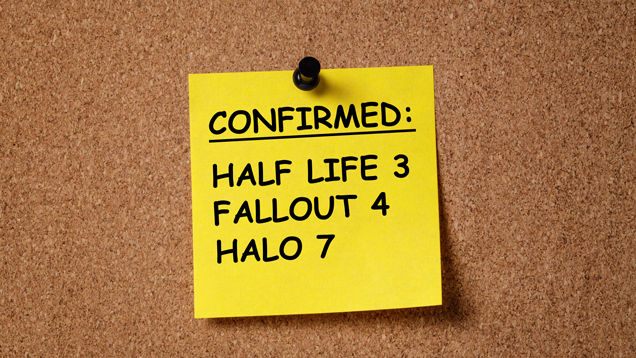E3 starts in less than four weeks, which means it’s prime season for ridiculous rumours about all the games that will show up this year. (Final Fantasy XV! The Last Guardian! Halo 5!)
Seeing crazy rumours float around the web can be fun, but it always sucks to get SUPER EXCITED for, say, a Fallout 4 appearance at E3, only to find out that you’re just being fooled by some teenager with Photoshop and way too much time on his hands.
Don’t worry. We’re here to help you out. I’ve put together a list of signs that the E3 rumour you’re reading might not be true. Feel free to use this for reference any time you see a wild rumour for the next few weeks. It will help.
Sign 1: It’s a giant list of games.
When looking at a rumour, it’s helpful to ask yourself one big question: Who would actually be in a position to know all of this information? If the answer is “nobody,” the rumour probably isn’t true.
So for example, this silly list of “first party” games — complete with that oh-so-convincing “NDA” in the corner — is a clear fake not just because it’s really dumb, but because there is nobody in the world who would make or have a list like this.

Don’t count on seeing “The Legend of Zelda: Shard of Nightmare” this year, or anything else you might see on a giant “leaked list” of E3 presser announcements. These decisions are constantly in flux, and bullet-pointed lists of game names are the easiest thing in the world to fake.
Sign 2: You’re looking at an angled, blurry picture of a screen.
I don’t know how this trend started, but for some reason, people like creating fake images and taking slanted, blurry pictures of them. Maybe it seems more authentic than just sharing the image straight-up? Anyway, this is almost always a sign that you’re looking at a fake.
This photo from last year, for example:

Sign 3: The source of the rumour is a prophet.
Here’s a fun story: a few months ago, I got an email from someone who said he was responsible for writing up one of the big fake E3 2o13 rumour lists that had floated around NeoGAF and other gaming sites last year. We exchanged a few emails, and I eventually asked him where he’d come up with all that stuff. Here’s his response, verbatim, with names removed to protect his identity:
Well, where I got the original info I’d posted plus all of what I just told you isn’t your usual typical industry source. Because of this I’m not bound to any NDA’s keeping me from talking about it. I’ve gone this far so I’ll tell you what that source is. For most of my adult life I have had a VERY string gut intuition. Now, sometimes there’s misses of course but it’s right far more often than not. Over the years I’ve known about all kinds of major gaming announcements months before they happened. When my intuition kicks in I see flashes of what will happen, like pictures. In the [GAME NAMES] cases I saw flashes of the translated English versions plus flashes of the actual people involved in the deals sitting in the room making them. As to my shocker [GAME NAME] statement all I can tell you is that’s what I was seeing flashes of-and very vividly at that which is why my mouth dropped open when I saw it was [GAME NAME] [STUDIO] was doing. I didn’t sit down beforehand going “Let’s see what I can write about [GAME NAMES].” I was writing what I saw as I saw it. As a further example, I knew Mega Man Legends 3 had been canned a bit before Capcom officially said it.
If your rumour came from someone who saw it in a flash, it’s probably not true.
Sign 4: It looks like it was easy to make in Photoshop.
Rumoured unfinished promotional materials that look like they were really easy to make in Photoshop were usually just made in Photoshop.
Here’s one from last year:

(Resident Evil 7 was not announced at E3 2013.)
Sign 5: It sounds like fanboy drivel.
As a general rule, when a list of E3 rumours is peppered with hyperbolic descriptors like “jaw-dropping visuals” and “setting a bench-mark for console graphics,” it was probably created just to get excited fans to spread it across the web.
Two big lists of “E3 announcements” from Sony and Microsoft circulated last week, and both were full of the type of breathless adjectives usually reserved for message boards and console wars. This is a good sign that they were not real. The people who made them just wanted you to get stoked about them. (Sorry. 🙁 )
E3 is in four weeks. Stay sceptical, and as always, stay tuned to Kotaku as we help you sort out what’s real and what isn’t.

Comments
12 responses to “How To Tell When An E3 Rumour Is Fake”
I now just ignore everything until I see it on a poorly buffered twitch stream on my phone where the audio lags half a minute behind the video. Then I assume every game at E3 will be delayed by 6 months for ‘extra polishing’
Personally, half the fun is the surprise that comes with the Live announcements at E3. If someone had told me they’d announce KH3 at E3 last year I would not have been as surprised and excited as I was when I saw being announced and shown Live. It’s half the reason I watch E3.
For that reason I avoid leaks. It’s so tempting but I know it will pay off.
This. It’s like knowing what your Christmas present is weeks before you get it, or what happens in the latest episode of Game Of Thrones. It completely spoils it.
Edit: Interesting, seems like KotakuAU may have a new bug, came up that I was posting too fast, but still posted my comment.
Everything I have been told is a LIE!!! Why internet why?! I trusted you with so much!
I see assessing e3 leaks/rumours as part of the e3 fun as well. They aren’t going anywhere so you might as well embrace it.
My cat has it on good authority fallout 4 is getting released at Christmas and halflife is getting a reboot to get around gabe’s fear of the number three. Go tell everyone you know……..
Nah, just pay attention to one particular NeoGaf user who has been leaking news for years and always been correct.
That is just crazy.
Surprised there is no halflife 3 announcement
No Half-Life 3 announcement.
Half-Life 3 confirmed.
But let’s face it, Kotaku will report on all rumours anyway, just on the off-chance that they might be real.
I usually find they don’t, and have pretty good verified sources.
Sauces.
Hot dogs.
mmmm